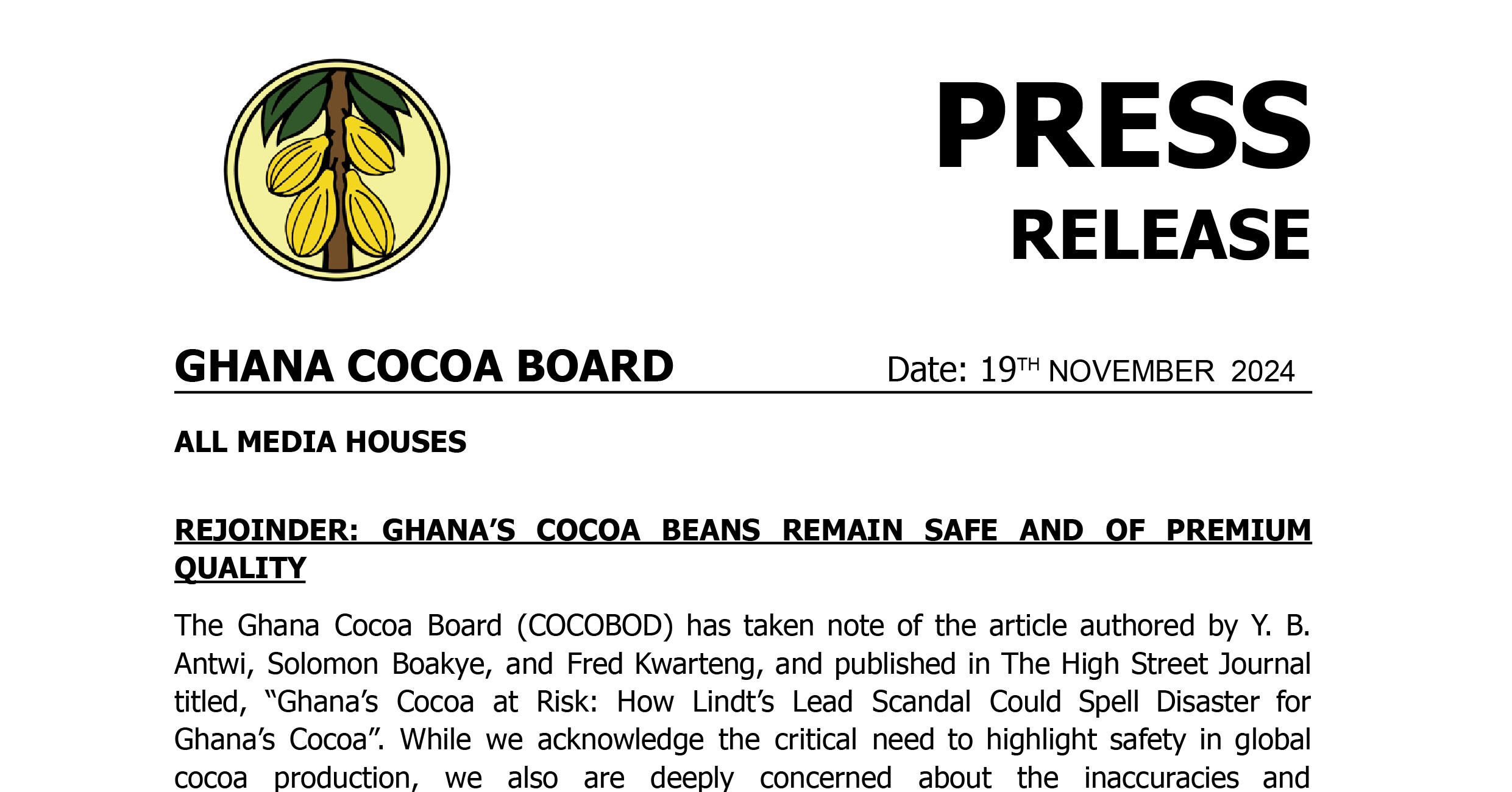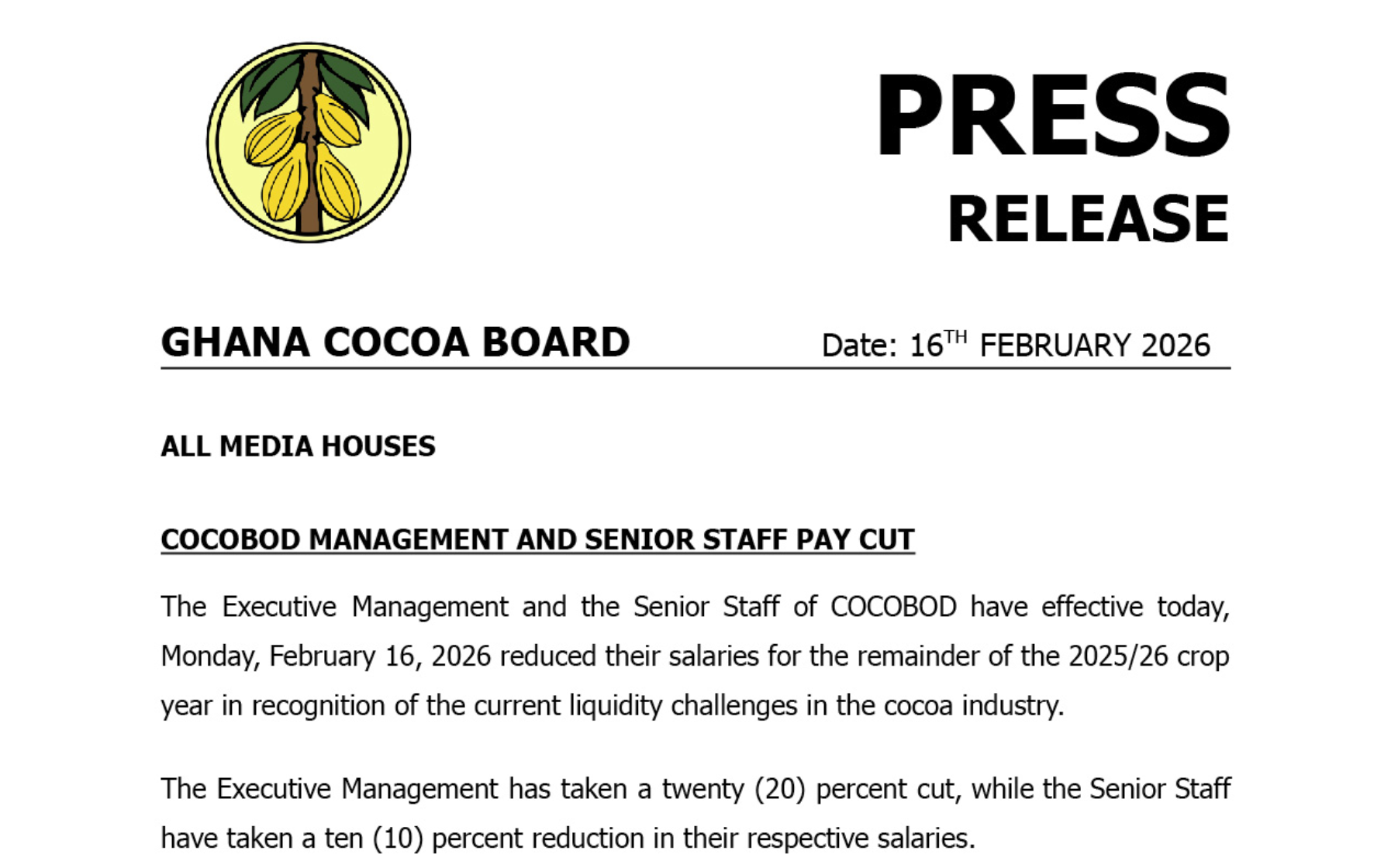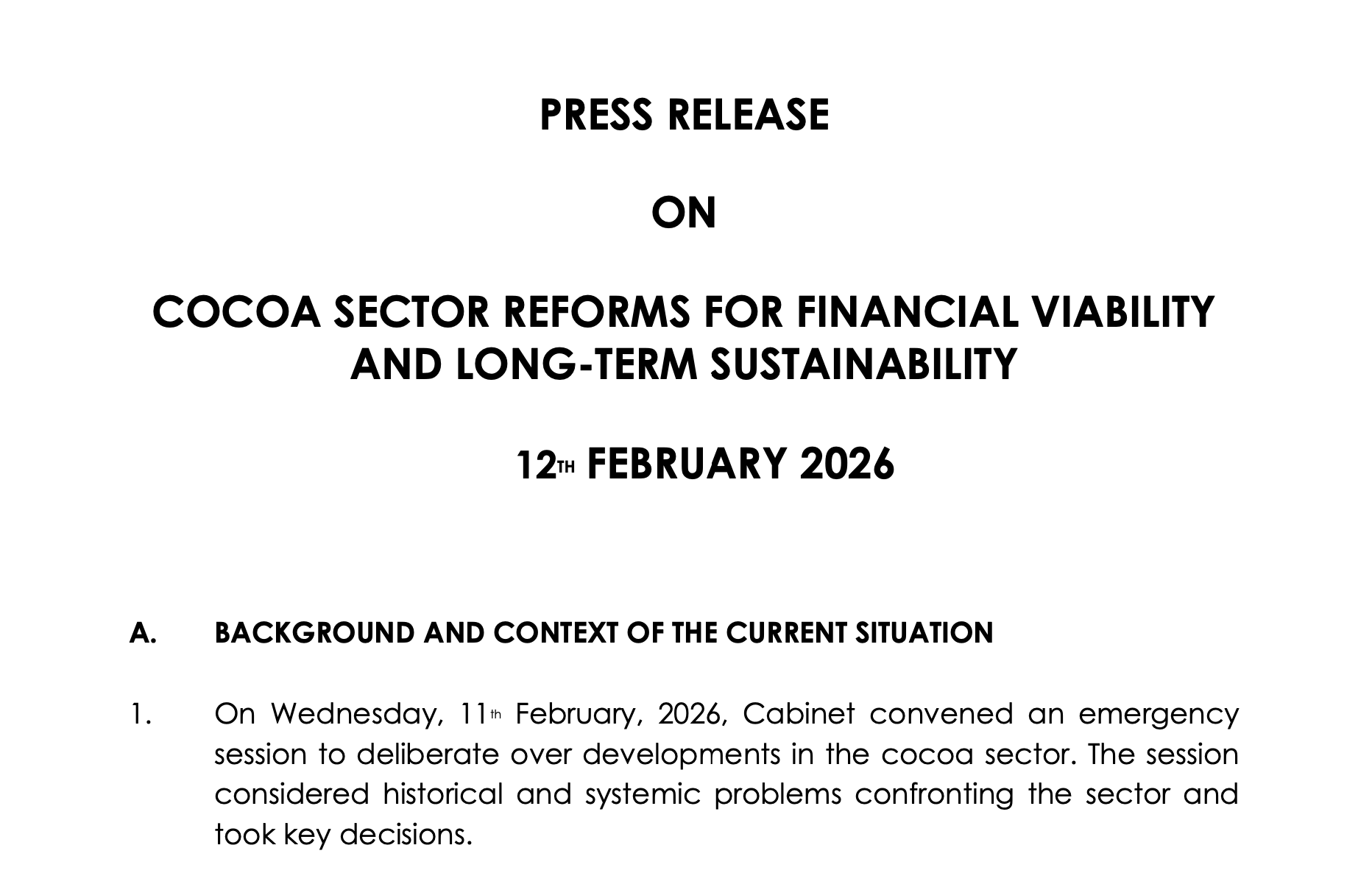REJOINDER: GHANA’S COCOA BEANS REMAIN SAFE AND OF PREMIUM QUALITY

Date: 21st November 2024
The Ghana Cocoa Board (COCOBOD) has taken note of the article authored by Y. B. Antwi, Solomon Boakye, and Fred Kwarteng, and published in The High Street Journal titled, “Ghana’s Cocoa at Risk: How Lindt’s Lead Scandal Could Spell Disaster for Ghana’s Cocoa”. While we acknowledge the critical need to highlight safety in global cocoa production, we also are deeply concerned about the inaccuracies and generalizations in the publication. This can either harm or damage Ghana's cocoa industry and tarnish its reputation as a producer of premium-quality cocoa.
Commitment to Quality Cocoa Production
COCOBOD remains committed to ensuring that Ghana’s cocoa meets and exceeds the highest international standards. The Quality Control Company (QCC), a subsidiary of COCOBOD, operates a state-of-the-art laboratory in Tema-Ghana, where comprehensive testing and analysis are conducted. Our cocoa beans are rigorously tested for Maximum Allowable Residue Limit of heavy metals, pesticides, polycyclic aromatic hydrocarbons and mycotoxins before they are sold on both local and international markets.
Ghana’s Mitigation Measures
Contrary to the claims in the article, Ghana has implemented robust measures to mitigate any potential contamination risks. These include:
1. Strict Monitoring: A thorough monitoring system ensures that cocoa farms adhere to safe agricultural practices. Only active ingredients allowed by the EU for cocoa are certified for use on cocoa in Ghana.
2. Education and Support for Farmers: Farmers receive training on the use of environmentally safe inputs and sustainable farming practices.
3. Partnerships with Stakeholders: Collaborations with international partners and regulatory bodies further strengthen our quality assurance processes.
It is important to note that the article lacks proper research into Ghana’s unique cocoa production landscape and the extensive measures COCOBOD has in place to guarantee quality and safety.
Reassurance to Stakeholders
We take this opportunity to assure our valued buyers, traders, chocolate manufacturers, and consumers that Ghana’s cocoa beans remain safe and continue to be of the premium quality that has earned global recognition over the years. COCOBOD will persist in its efforts to sustain this reputation by upholding rigorous quality control measures.
Call for Responsible Reporting
We respectfully urge media outlets to exercise due diligence before publishing stories that could negatively impact industries, livelihoods, and economies. The cocoa industry is the primary source of livelihood for about 800,000 farm families. We must therefore make every effort to rightfully protect the sector from publications of this nature and ensure its sustainability. COCOBOD is open to engaging with journalists and researchers to provide accurate information about Ghana’s cocoa industry.
Conclusion
Ghana’s cocoa is a symbol of excellence and sustainability. We remain resolute in our mission to ensure the production of cocoa that meets the highest international standards, and remains the benchmark for global cocoa.
ISSUED BY: PUBLIC AFFAIRS DEPARTMENT
For more information, please contact the Public Affairs Department, Ghana Cocoa Board Office Direct Line: (0302) 66-17-66 E-mail: [email protected]
Other News / Articles you might be interested in.

COCOBOD MANAGEMENT AND SENIOR STAFF PAY CUT
The Executive Management and the Senior Staff of COCOBOD have, effective today, Monday, ...
Read More
PRESS RELEASE ON COCOA SECTOR REFORMS FOR FINANCIAL VIABILITY AND LONG-TERM SUSTAINABILITY
A. BACKGROUND AND CONTEXT OF THE CURRENT SITUATION 1. On Wednesday, 11th February, 2026, ...
Read More
COCOBOD HONOURS GHANAIAN COCOA FARMERS FOR EXCELLENCE AT INTERNATIONAL COCOA AWARDS
Management of Ghana Cocoa Board (COCOBOD) has honoured the winners of the 2023 International ...
Read More